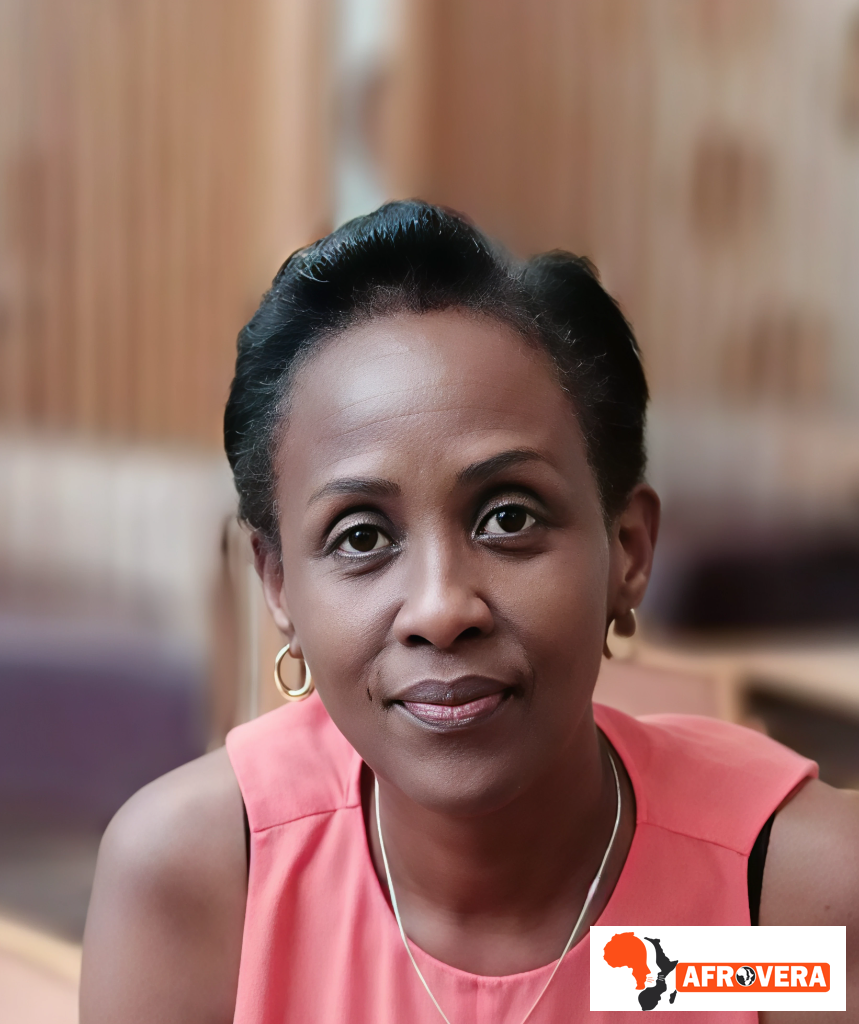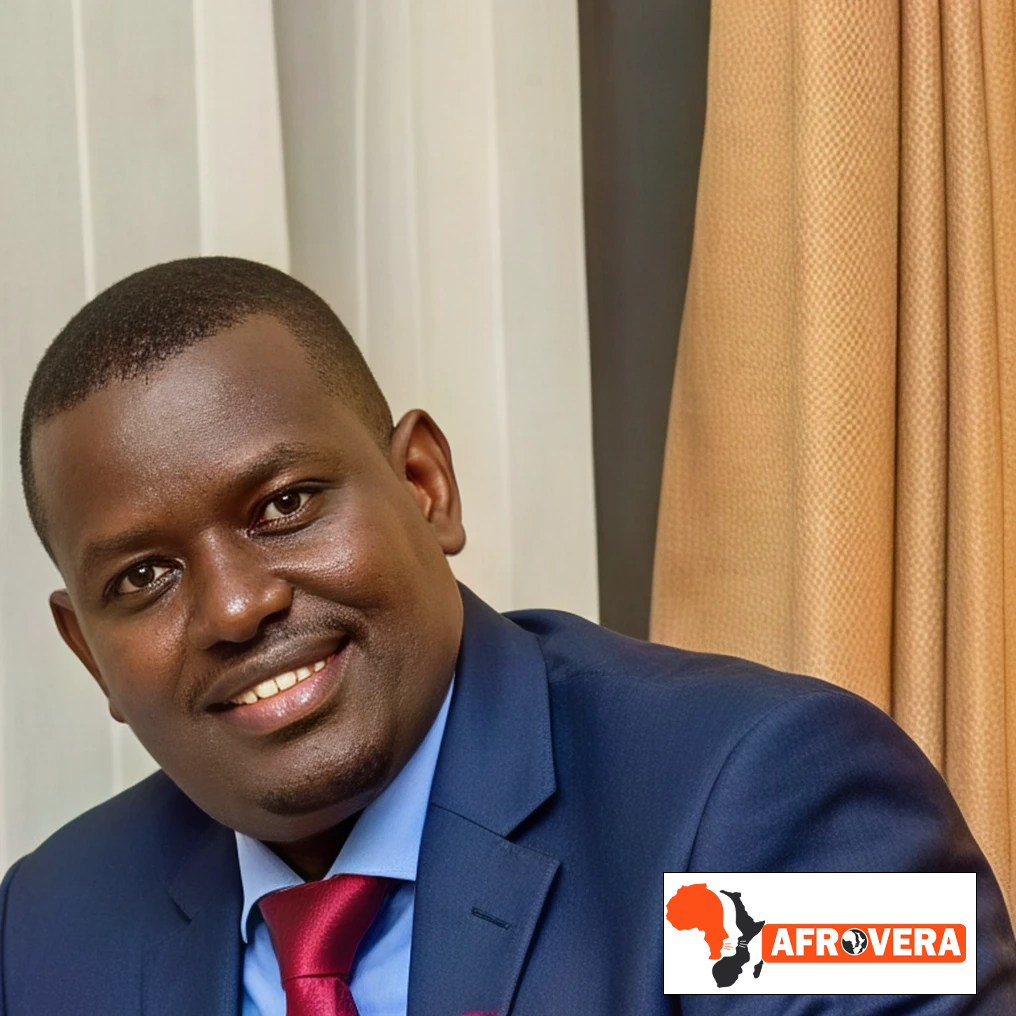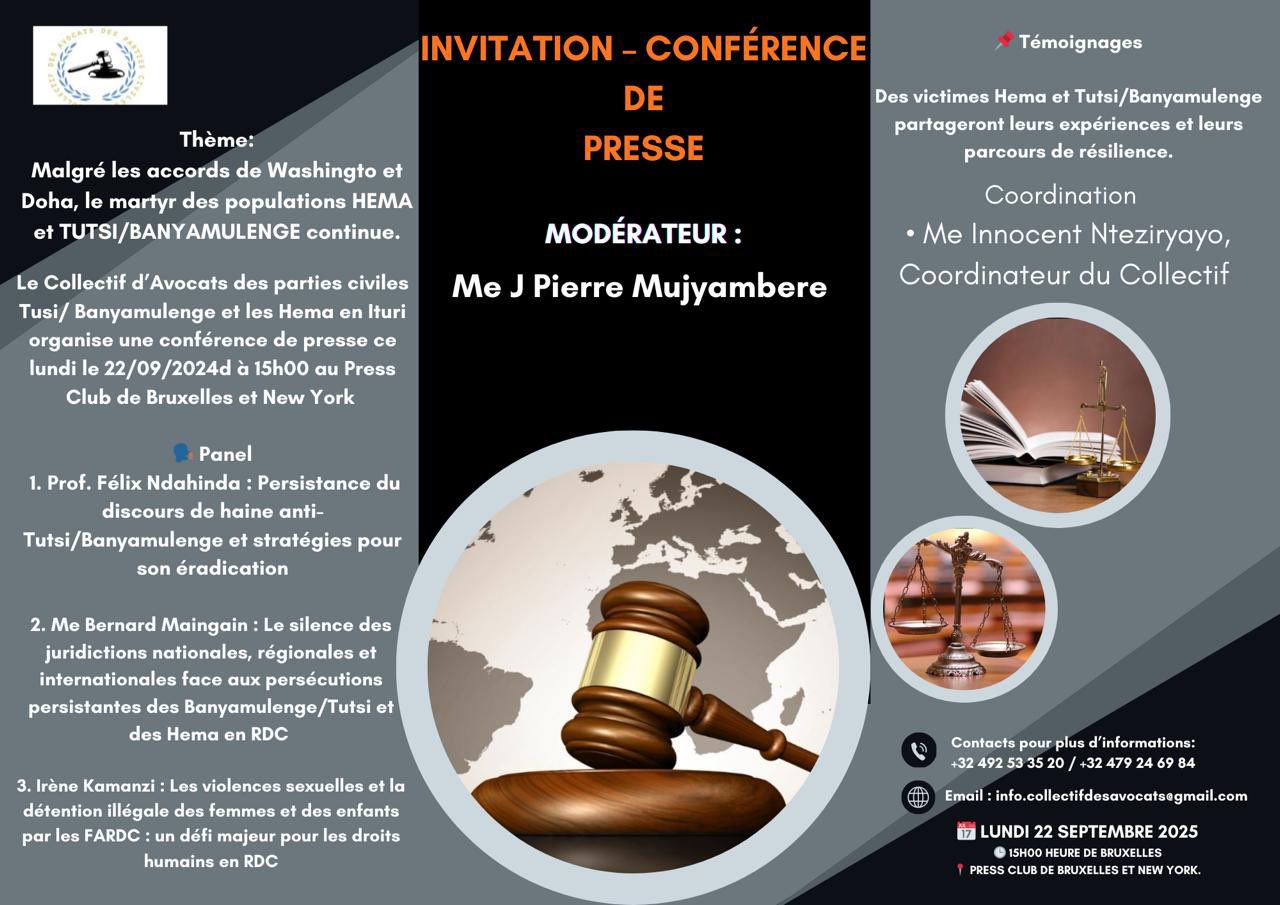The Collective of Lawyers representing the Tutsi/Banyamulenge and Hema communities in the Democratic Republic of Congo has announced a press conference scheduled for Monday, September 22, 2025. The event will be held at the Press Club in Brussels at 3:00 p.m. and at the Press Club in New York at 11:00 a.m., bringing international attention to what organizers describe as the ongoing martyrdom of these communities.
The conference comes under the theme: “Despite the Washington and Doha agreements, the martyrdom of the Hema and Tutsi/Banyamulenge populations continues.” For many observers, this highlights the gap between international promises and the reality on the ground in eastern Congo.
The Washington and Doha agreements were designed to provide a framework for peace and reconciliation in the Great Lakes region, particularly targeting the recurring violence in the Democratic Republic of Congo. The Washington accord, reached in the early 2000s, sought to end foreign involvement in the Congolese conflict and to stabilize the region through power-sharing arrangements. The Doha agreement, signed later, aimed to promote dialogue and end hostilities in eastern Congo, including commitments to protect minority communities. Both agreements generated hope for peace but have since been criticized for weak implementation and lack of accountability mechanisms.
According to the Collective, these shortcomings have allowed cycles of violence to persist. The Hema and Tutsi/Banyamulenge, two minority groups with long histories in the region, have repeatedly found themselves targeted by both armed groups and elements within the state apparatus. Organizers argue that the promises of Washington and Doha remain largely symbolic, with little impact on the daily lives of these populations.
Moderating the press conference will be Me Jean-Pierre Mujyambere, who will guide the discussion on why these agreements have failed and what can be done to address the gaps. The panel will feature legal and academic experts offering different perspectives on the crisis.
Prof. Félix Ndahinda will address the persistence of hate speech against the Tutsi and Banyamulenge. He is expected to outline strategies for combating rhetoric that fuels violence and deepens ethnic divides, warning that unchecked narratives of exclusion pose a long-term threat to peace.
Me Bernard Maingain will focus on the silence of judicial institutions. He argues that national courts in Congo, regional bodies, and even international mechanisms have been reluctant or unwilling to tackle the systematic persecution of minority groups. By exposing this judicial inaction, he hopes to build pressure on institutions to uphold their responsibilities.

Irène Kamanzi will bring attention to human rights abuses committed against women and children, particularly sexual violence and illegal detentions attributed to elements of the Congolese armed forces (FARDC). She is expected to frame these violations as both crimes under international law and urgent humanitarian issues requiring intervention.
Beyond expert testimony, the event will also give a platform to survivors from the Hema and Tutsi/Banyamulenge communities. Victims will share personal stories of violence and displacement, but also of resilience. Organizers say these testimonies are crucial to ensuring that the crisis is not reduced to abstract political discussions but is understood in human terms.
The conference is coordinated by Me Innocent Nteziryayo, who has emphasized the importance of exposing the discrepancy between international commitments and the lived reality of vulnerable populations. “The agreements were supposed to protect these communities, yet they remain among the most persecuted in the Congo,” he has previously noted.
For many analysts, the upcoming press conference signals a growing determination among legal practitioners and human rights defenders to hold governments and institutions accountable. The message is clear: peace agreements without enforcement are not enough, and the world cannot afford to ignore ongoing atrocities in eastern Congo.
The event is expected to attract the attention of international media, advocacy organizations, and policymakers who continue to grapple with the challenges of stability in the region. For more information, inquiries can be directed info.collectifdesavocats@gmail.com





